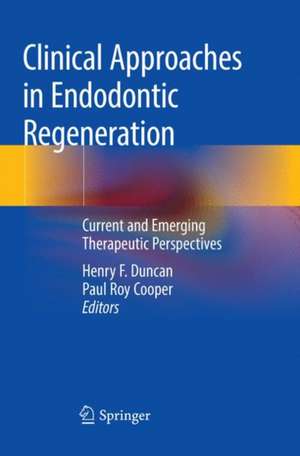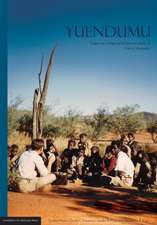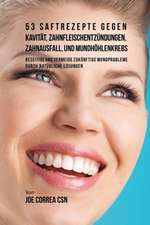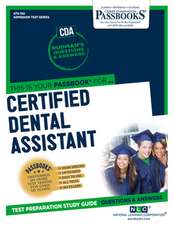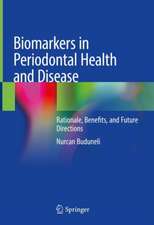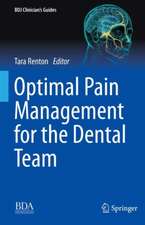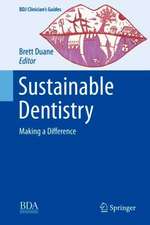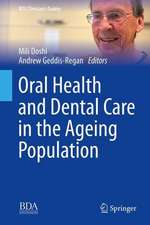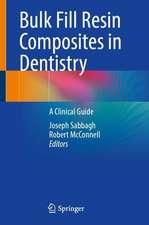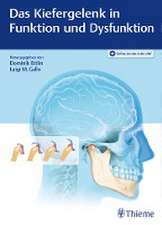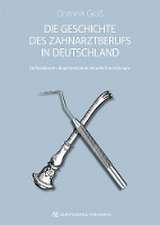Clinical Approaches in Endodontic Regeneration: Current and Emerging Therapeutic Perspectives
Editat de Henry F. Duncan, Paul Roy Cooperen Limba Engleză Paperback – 13 dec 2018
| Toate formatele și edițiile | Preț | Express |
|---|---|---|
| Paperback (1) | 639.44 lei 39-44 zile | |
| Springer International Publishing – 13 dec 2018 | 639.44 lei 39-44 zile | |
| Hardback (1) | 894.12 lei 39-44 zile | |
| Springer International Publishing – 12 noi 2018 | 894.12 lei 39-44 zile |
Preț: 639.44 lei
Preț vechi: 673.09 lei
-5% Nou
Puncte Express: 959
Preț estimativ în valută:
122.36€ • 130.84$ • 102.02£
122.36€ • 130.84$ • 102.02£
Carte tipărită la comandă
Livrare economică 14-19 aprilie
Preluare comenzi: 021 569.72.76
Specificații
ISBN-13: 9783030072629
ISBN-10: 3030072622
Pagini: 194
Ilustrații: IX, 194 p. 39 illus., 35 illus. in color.
Dimensiuni: 155 x 235 mm
Ediția:Softcover reprint of the original 1st ed. 2019
Editura: Springer International Publishing
Colecția Springer
Locul publicării:Cham, Switzerland
ISBN-10: 3030072622
Pagini: 194
Ilustrații: IX, 194 p. 39 illus., 35 illus. in color.
Dimensiuni: 155 x 235 mm
Ediția:Softcover reprint of the original 1st ed. 2019
Editura: Springer International Publishing
Colecția Springer
Locul publicării:Cham, Switzerland
Cuprins
Foreword.-Introduction.- Current and future directions in pulp diagnostics.- Current and future views caries management.- Current and future views on pulpal pain and neurogenesis.- Current and future views on pulpal angiogenesis.- Current and future views on pulp exposure management and epigenetic influences.- Current and future views on biomaterial use in regenerative endodontics.- Current understanding and future views on pulp inflammation & repair.- Current and future views on disinfection for regenerative strategies.- Current and future views on non-cell-based regenerative strategies.- Current and future views on stem cell-based strategies.- Current and future views on pulpal tissue engineering.- Current clinical practice and future translation
Notă biografică
Henry (Hal) Duncan is a full-time Assistant Professor and Consultant in Endodontics at Dublin Dental University Hospital, Trinity College Dublin, Ireland, leading and coordinating teaching, treatment, and research in the field of Endodontology. He graduated in Dentistry from Glasgow University in 1993 and completed his Fellowship in Dental Surgery from the Royal College of Surgeons (F.D.S R.C.S., Edinburgh) in 1999. In 2006 he gained a Masters in Clinical Dentistry (with distinction) in the subject of Endodontics (MClin.Dent., London) and in 2016 completed his PhD in Oral Biology at the University of Birmingham. His main areas of research are the potential therapeutic role of epigenetic modifiers in vital pulp treatment and regenerative pulp therapy. Dr. Duncan has been lead or co-author of approaching 30 original articles and review papers in peer-reviewed journals and is co-editor of Pitt Ford's Problem-Based Learning in Endodontology (Wiley-Blackwell, Oxford, 2011). He is aneditorial board member and Associate Editor: Clinical Studies for the International Endodontic Journal.
Paul R. Cooper is Professor of Oral Biology at the School of Dentistry, College of Medical and Dental Sciences, University of Birmingham, UK. He became full Professor in 2012, having previously been Lecturer and Senior Lecturer in Molecular Biology. He is also Honorary Professor in the School of Life & Health Sciences, Aston University, the Dublin Dental University Hospital, Trinity College Dublin, Ireland and the Faculty of Dentistry, University of Otago, New Zealand. He gained a BSc (Hons) in Genetics from Leeds University in 1992 and completed his PhD in Cancer Studies at the University of Birmingham in 1995. Dr. Cooper has been a founding member and inaugural president of the European Society of Dental & Craniofacial Stem Cells (ESDCSC), is currently Chair of the British Society for Oral and Dental Research’s GSK-Mineralised Tissue Group (BSODR-GSK-MINTIG) and sits on the BSODR Management Committee. In 2010 he was awarded the International Association for Dental Research (IADR) Distinguished Scientist Young Investigator Award. He is an editorial board member for four key discipline journals and a referee for more than 20 journals. To date he has authored over 130 full publications in research fields including pulp biology, periodontology, stem cell biology, inflammation and immunology, and photobiomodulation.
Paul R. Cooper is Professor of Oral Biology at the School of Dentistry, College of Medical and Dental Sciences, University of Birmingham, UK. He became full Professor in 2012, having previously been Lecturer and Senior Lecturer in Molecular Biology. He is also Honorary Professor in the School of Life & Health Sciences, Aston University, the Dublin Dental University Hospital, Trinity College Dublin, Ireland and the Faculty of Dentistry, University of Otago, New Zealand. He gained a BSc (Hons) in Genetics from Leeds University in 1992 and completed his PhD in Cancer Studies at the University of Birmingham in 1995. Dr. Cooper has been a founding member and inaugural president of the European Society of Dental & Craniofacial Stem Cells (ESDCSC), is currently Chair of the British Society for Oral and Dental Research’s GSK-Mineralised Tissue Group (BSODR-GSK-MINTIG) and sits on the BSODR Management Committee. In 2010 he was awarded the International Association for Dental Research (IADR) Distinguished Scientist Young Investigator Award. He is an editorial board member for four key discipline journals and a referee for more than 20 journals. To date he has authored over 130 full publications in research fields including pulp biology, periodontology, stem cell biology, inflammation and immunology, and photobiomodulation.
Textul de pe ultima copertă
This richly illustrated book combines explanation of the scientific base underpinning vital pulp treatment with description of current and emerging trends in clinical practice. It guides the reader through modern views on pulp diagnostics, deep caries, and pulp exposure management, leading to an analysis of the biological aspects of regenerative techniques such as angiogenesis, neurogenesis, inflammation, and epigenetics. In the later chapters, practical considerations relating to bioengineering, biomaterial choice, revitalization, and stem cell-based procedures are discussed and their likely therapeutic impact considered. Aimed at dental students, postgraduates, and research-minded dental practitioners, this translational book summarizes state-of-the-art scientific knowledge on dentin–pulp interactions and regenerative endodontics, while highlighting the opportunities to incorporate recent developments into everyday practice. Readers will also find extensive discussion of potential future developments and research avenues relating to each aspect of this exciting and rapidly developing field.
Caracteristici
Summarizes current knowledge in an easy-to-understand format Leads the reader logically through the challenges facing the field, with the accent on therapeutic biologically based solutions Written by international scientists and clinicians with acknowledged expertise Richly illustrated throughout
